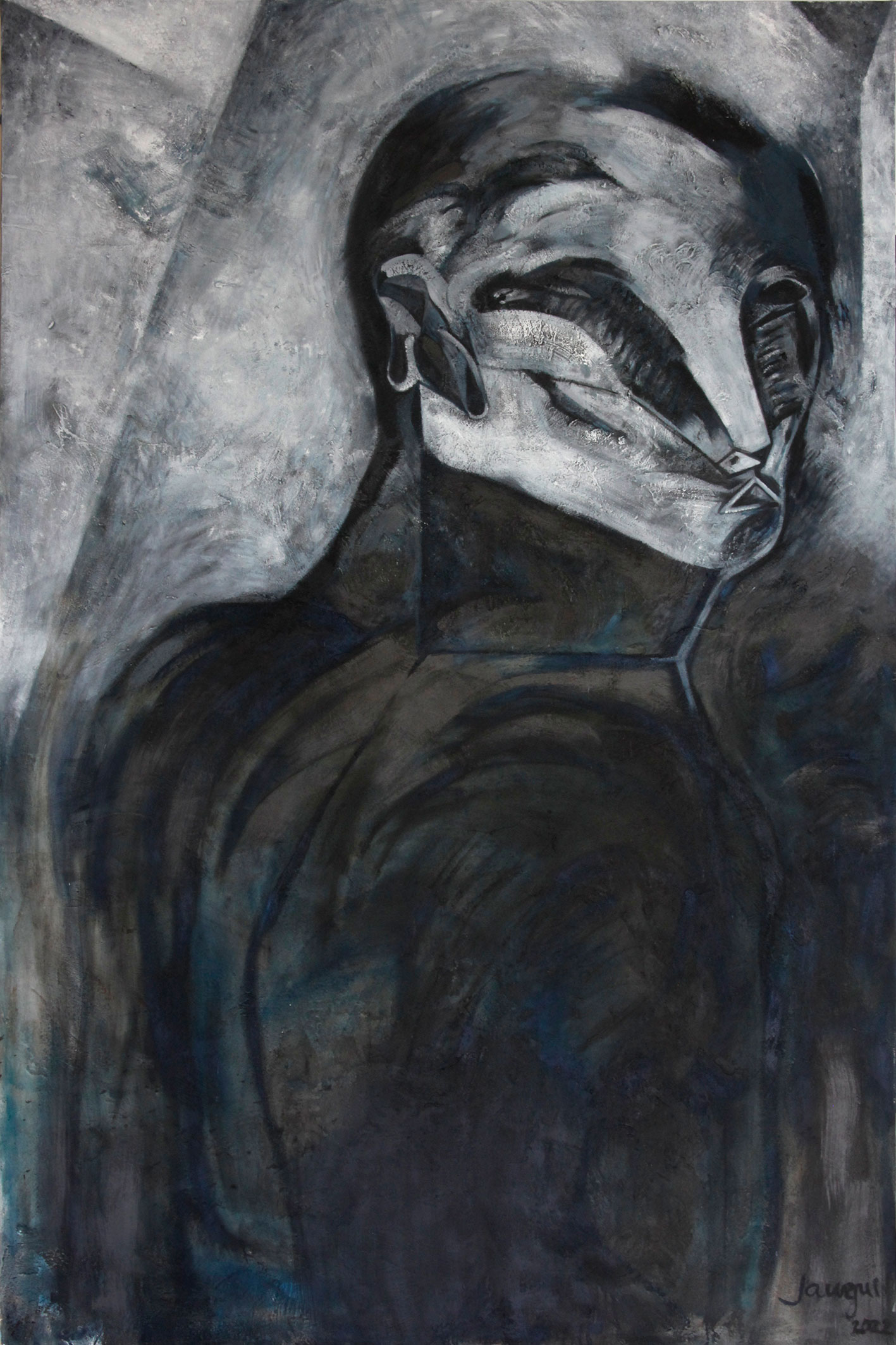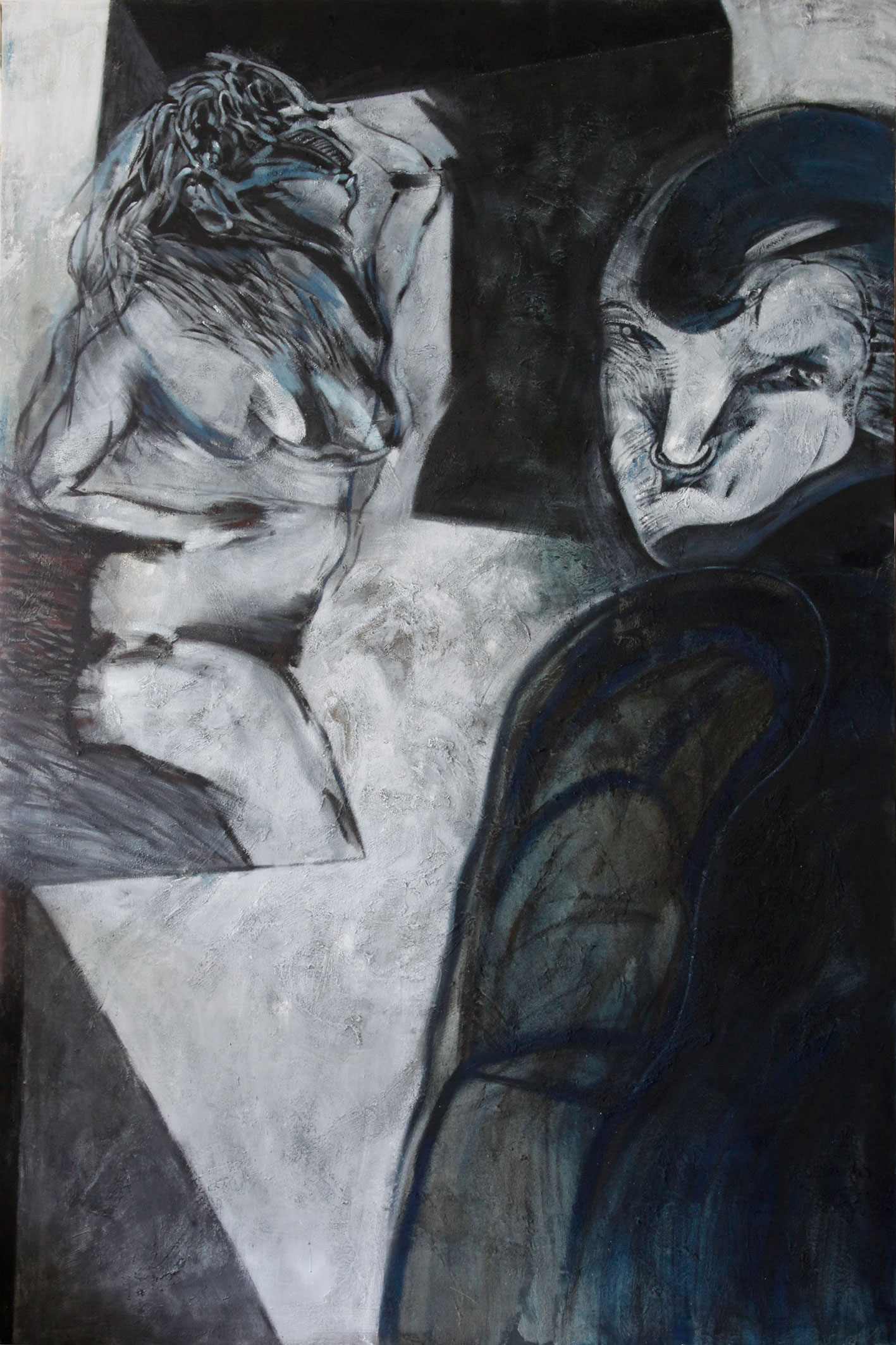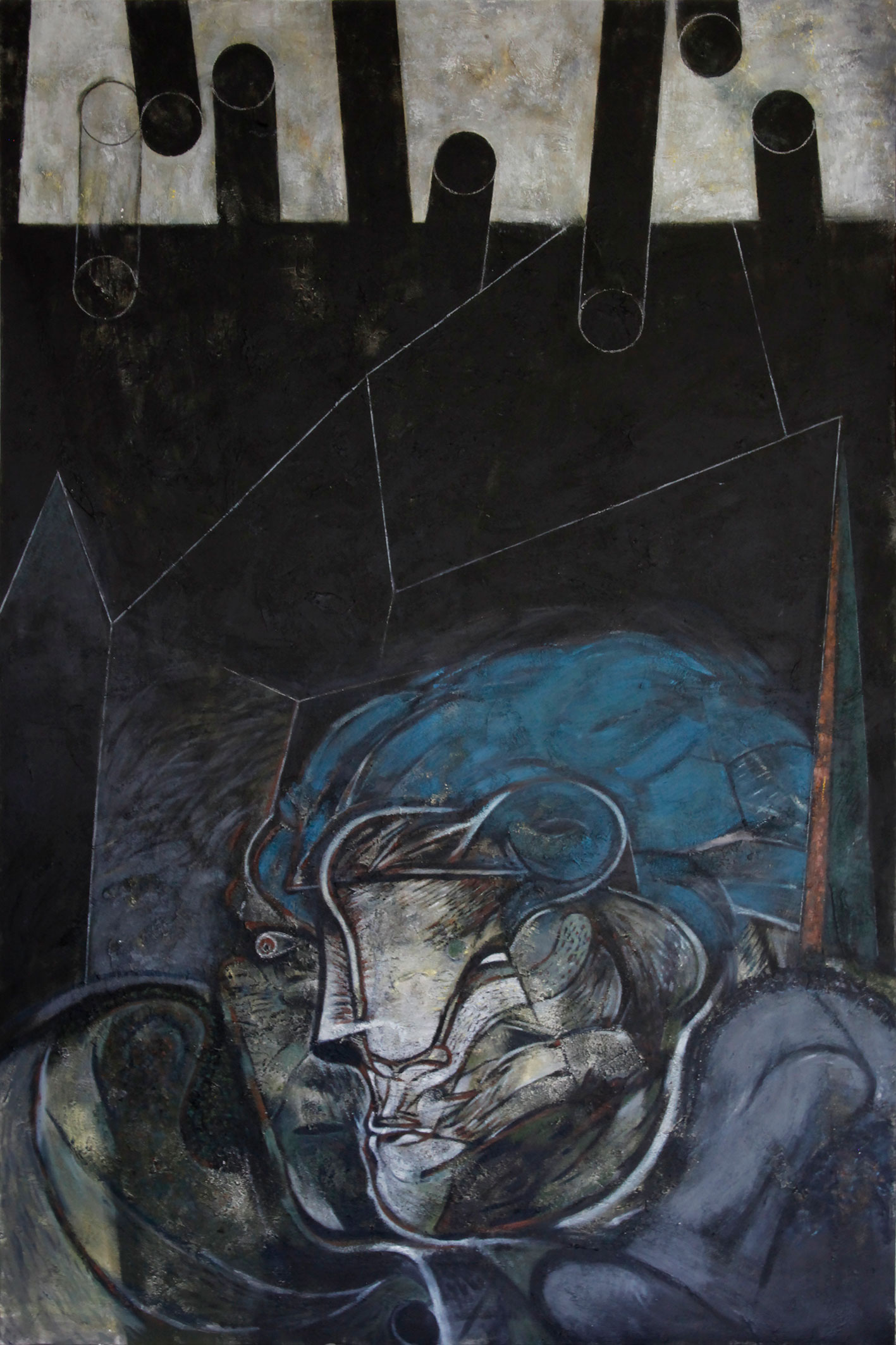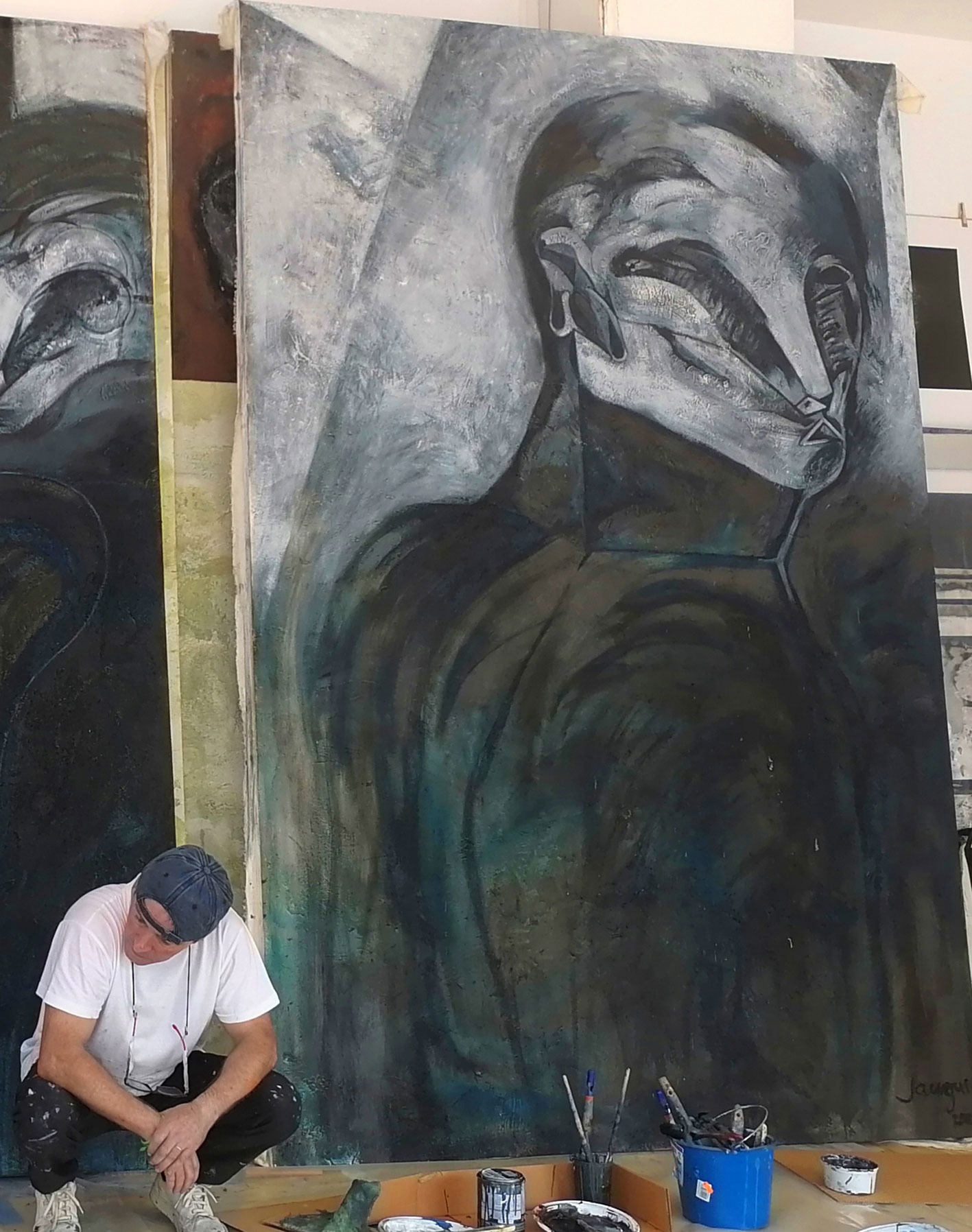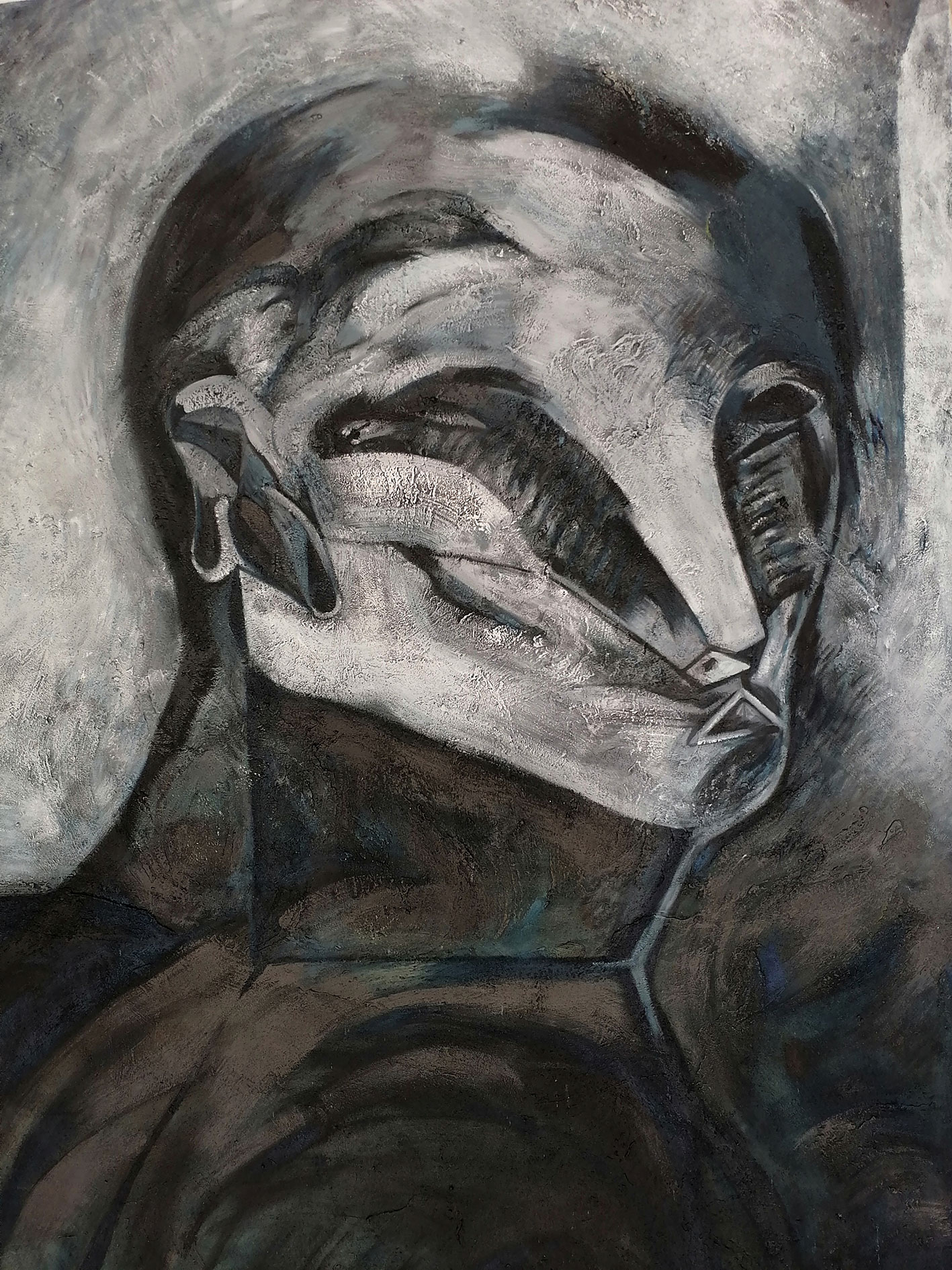JESÚS JÁUREGUI
19th January
Thursday, 18:00
Jesús Jáuregui (Bilbao, 1957) studied at the University of Fine Arts in Bilbao in 1977.
For more than fifteen years, he maintained a close relationship of friendship, learning and collaboration with two recognised masters of international contemporary art: Jorge Oteiza and Nestor Basterretxea. With the latter, he collaborated on a series of documentaries for the ETB2 television channel on the cultures of Pre-Columbian America. He also took part in the construction of the monument to the Basque shepherd, a competition in Reno, Nevada.
These relationships were of paramount importance in a constructivist-oriented training, an aesthetic that would form the fundamental creative basis for the coming years.
Jesús Jáuregui has spent more than thirty years dedicated to plastic disciplines such as urban sculpture, large format oil painting, engraving, lithography, scenographic interventions in small experimental theatres, and in masters lectures on creativity, public staging and plastic treatments of large scale formats in Fine Arts Universities and in Colleges of Architects.
Fanthumus:
the chthonic anthropology of Jesús Jáuregui
What are we, what is the human being? This is an age-old question. If it is still relevant, it is because it is still open to new and convincing answers.
Many people take for granted the well-known Aristotelian definition of man as a ‘political animal’ - that is, social: made to live in a certain polis. Still echoing with some force are innumerable figurations of the human, based on Greek tragedy, Christian theology, the humanism of Pico della Mirandola, Shakespearean theatre, the rationalist subjectivism of Descartes, Kantian criticism, Marxist historicism, the various existentialisms of not so distant times, and many other philosophies and systems of thought. Among Nietsche's provocative geniuses is that of having described us humans as a combination of vegetable and stantigoth.
Several decades ago, Jáuregui re-themed the question of the human, in accordance with his unique vision of art and the world. The fruits of his persistent inquiries in this regard are in sight: first, his penetrating interpretations of the Mexica zompantli (a process that is still ongoing, with recent findings in situ in the Aztec Templo Mayor in Mexico City); then the exhibition of 50 oils on canvas and large-format prints, Caras vemos, at the Galería Lumbreras (Bilbao, 2015), and the virtual launch of the series of 10 black and white prints, also large in size, Mare rostrum, in 2020.
The artist from Bilbao has continued to excavate the depths of the human and his most recent discovery has been a disturbing vein of images in which humus - that uncertain solidity of what springs from a proto-vital, effervescent, chthonic force, in a perpetual trance of promising life and in constant aspiration for solidity - and the always elusive, uncertain, evanescent imago of phantasmatic entities, merge in an aesthetically fertile way. The underlying anthropological intuition, in the elaboration of the large-format oil paintings that make up this new collection by Jáuregui, is that we are animals in which the indifferent vitality of humus intermingles with the flimsy corporeality and the dubious show of the phantasm. Humus and ghost: that is what we are for Jáuregui and he wants to proclaim this disturbing revelation from the title of this series of paintings: Fanthumus.
There is no point in disputing whether the artist is right or wrong in his anthropological disquisitions. What is worth noting is the derivations of his thinking on the level of his proposal and his pictorial work. In these times of confusion and renunciation of the rigours of authentic art, it is worth celebrating the expressive power of these paintings by Jáuregui. Also the artist's capacity for figurative expression and his skill in the handling of composition and colours, shadows and nuances. The same can be said of the alliance of these attributes with a technical materiality and physical supports in accordance with the required plastic tonality, to give an account of the pregnant intuitions that are evident in all the works included in the Fanthumus catalogue.
Josu Landa
Mexico City, December 2022
-
Jesús Jáuregui (Bilbao, 1957) cursa estudios superiores, en el año 1977, en la Universidad de Bellas Artes de Bilbao.
Durante más de quince años, sostiene una estrecha relación de amistad, aprendizaje y colaboración, con dos reconocidos maestros del arte contemporáneo internacional: Jorge Oteiza y Nestor Basterretxea. Con este último colabora en una serie de documentales, para la cadena televisiva ETB2, sobre las culturas de la América Precolombina. Además, también participa en la construcción del monumento al pastor vasco, concursado en Reno, Nevada.
Estas relaciones fueron de importancia capital en una formación de orientación constructivista, estética que asentará la base fundamental creativa de los próximos años.
Jesús Jáuregui lleva más de treinta años dedicados a las disciplinas plásticas como la escultura urbana, el óleo de gran formato, el grabado, la litografía, intervenciones escenográficas en pequeños teatros experimentales, y en máster charlas sobre creatividad, puestas en escena pública y tratamientos plásticos de formatos de gran escala en universidades de Bellas de Artes y en Colegios de Arquitectos.
Fanthumus:
la antropología ctónica de Jesús Jáuregui
¿Qué somos, qué es el ser humano? Esta es una pregunta milenaria. Si todavía tiene pertinencia, es porque sigue abierta a nuevas respuestas meridianamente convincentes.
Mucha gente tiene por buena la archiconocida definición aristotélica del hombre como un “animal político” –es decir, social: hecho para vivir en determinada polis–. Todavía resuenan con alguna fuerza innúmeras figuraciones de lo humano sustentadas en la tragedia griega, la teología cristiana, el humanismo de Pico della Mirandola, el teatro shakepeareano, el subjetivismo racionalista de Descartes, el criticismo kantiano, el historicismo marxista, los diversos existencialismos de tiempos no tan remotos y muchas otras filosofías y sistemas de pensamiento. Entre las provocadoras genialidades de Nietsche está la de habernos descrito a los humanos como combinación de vegetal y estantigua.
Hace ya varios lustros, Jáuregui volvió a temetizar el asunto de lo humano, de acuerdo con su singular visión del arte y del mundo. Los frutos de sus persistentes indagacaciones a ese respecto están a la vista: primero, sus penetrantes interpretaciones del zompantli mexica (proceso que sigue su curso, con recientes hallazgos in situ, en el Templo Mayor azteca, en Ciudad de México); posteriormente, la exposición de 50 óleos sobre lienzo y grabados de gran formato, Caras vemos, en la Galería Lumbreras (Bilbao, 2015), y el lanzamiento virtual de la serie de 10 grabados en blanco y negro, igualmente de gran tamaño, Mare rostrum, en 2020.
El artista bilbaíno ha seguido excavando en las honduras de lo humano y su hallazgo más reciente ha sido una turbadora veta de imágenes en las que se funden, de manera estéticamente fecunda, el humus –esa solidez incierta de lo que brota de una fuerza ctónica protovital, efervescente, en perpetuo trance de prometer vida y en constante aspiración de solidez– y la imago siempre inaprensible, incierta, evanecescente, de las entidades fantasmáticas. La intuición antropológica de fondo, en la elaboración de los óleos de gran formato que integran esta nueva colección de Jáuregui, es la de que somos animales en que la vitalidad indiferente del humus se entrevera con la corporeidad endeble y la mostranza dudosa del fantasma. Humus y fantasma: eso somos para Jáuregui y quiere proclamar esta inquietante revelación desde el título de esa serie de cuadros: Fanthumus.
No viene al caso disputar sobre si el artista tiene razón o no en sus disquisiciones antropológicas. En lo que sí conviene reparar es en las derivaciones de su pensamiento en el plano de su propuesta y su labor pictórica. En estos tiempos de confusión y de renuncia a los rigores del auténtico arte, es digno de celebrar la potencia expresiva de estos cuadros de Jáuregui. También la capacidad de plasmación figurativa del artista y su pericia en el manejo de la composición y los colores, las sombras, los matices. Lo mismo cabe decir de la alianza de esos atributos con una materialidad técnica y unos soportes físicos acordes con la tonalidad plástica requerida, para dar cuenta de las pregnantes intuiciones que evidencian todas las obras incluidas en el catálogo de Fanthumus.
Josu Landa
Ciudad de México, diciembre de 2022
